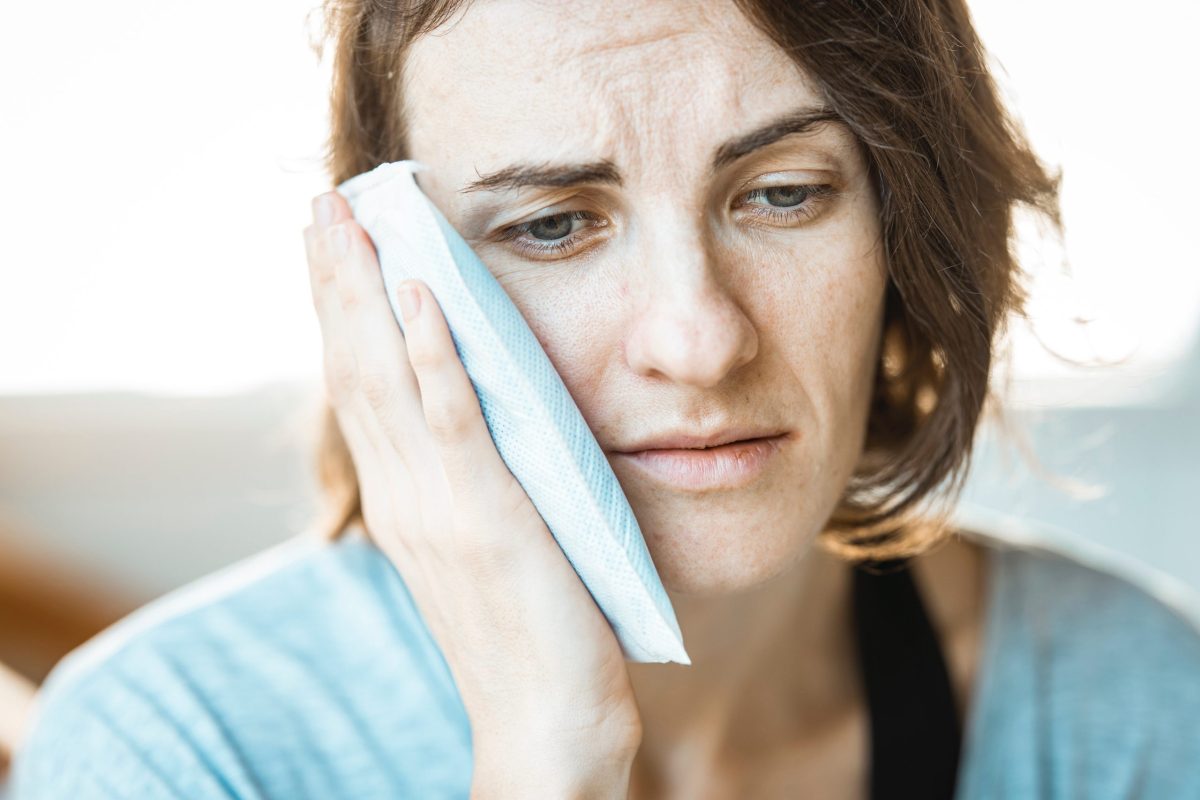How to stop grinding your teeth
Do you ever find yourself grinding your teeth when you’re feeling stressed, or have you been told you grind your teeth while you’re sleeping?
Teeth grinding, or as it’s commonly known, bruxism, doesn’t pose a huge problem when it’s done on a rare occasion, but it can be damaging for your teeth and jaw if it’s happening on a regular basis. It can lead to sleepless nights for you and your partner, severe headaches and ongoing dental and health problems.
At The Practice we offer the latest in dental solutions to manage bruxism with a variety of oral appliances to help avoid further damage to your teeth or jaw.
To help you understand Bruxism, here’s everything you need to know about this condition.
What is Bruxism?
Teeth grinding, or Bruxism, is a condition where a person unconsciously rubs their teeth together from side to side, under pressure. When bruxism occurs on a regular basis it can cause teeth damage and jaw pain.
There are two types of bruxism, awake and sleep bruxism.
Sleep bruxism: This occurs involuntarily during sleep.
Awake bruxism: This is less common and occurs during the day.
What causes bruxism
There are many causes of bruxism and it affects different people in different ways. Some of the main causes include:
Stress and anxiety: This is one of the main causes of bruxism. When the body is stressed it produces more adrenaline and cortisol, which can then lead to involuntary physical reactions such as teeth grinding.
Medical conditions: Teeth grinding can be a symptom of several medical conditions including Parkinson’s disease, dementia, ADHD, epilepsy, cerebral palsy, down syndrome, autism, depression, fibromyalgia, OCD, depression, night terrors and more.
There are also some medications that can cause teeth grinding, especially those created to treat psychiatric conditions such as antidepressants and antipsychotics.
Misaligned teeth: Misalignment between the upper and lower teeth can cause teeth grinding.
Sleep disorders: Sleep habits and disorders such as sleep apnoea, teeth clenching, talking, punching and kicking and sleep paralysis are associated with teeth grinding.
Lifestyle: Recreational drugs, excessive alcohol consumption, smoking and the excessive consumption of caffeine have all been linked to bruxism when the nervous system is stimulated.
Baby teeth: Generally teeth grinding in children is short lived, however it normally occurs after baby teeth come through or after the development of permanent teeth.

Signs and symptoms
Bruxism can be hard to detect, as it often occurs while you are sleeping, however there are a few specific signs and symptoms that indicate you are grinding your teeth, including:
- Headaches upon waking.
- Soreness in the jaw on waking.
- Chipped or fractured teeth for no apparent reason.
- Disrupted sleep.
- Worn down or and sensitive teeth.
- Noisy jaw joints that click or pop particularly in the morning.
- Your partner is complaining of noise while you are sleeping.
- Limited range of motion in the jaw – locked jaw.
If you believe you may be grinding your teeth, our dentists will conduct a thorough examination of your teeth to look for signs of the condition. Regular visits to the dentist will help monitor your progress and identify the best treatment options.
Regular teeth grinding can lead to:
- Jaw pain and headaches.
- Teeth pain and sensitivity to heat and cold.
- Sleep interruptions.
- Damage to tooth enamel.
- Chipped or broken teeth.
- Difficulty opening jaw.
How to stop teeth grinding
In many cases treatment for bruxism isn’t necessary. In children the condition will usually subside on its own and many adults won’t have severe enough teeth grinding to make it an issue.
For more serious cases of teeth grinding, a visit to the dentist is necessary. They could take a few different dental approaches to treat the cause of your bruxism and repair any potential damage, including:
- Remove the causes – eg. stress or anxiety.
- Repair damaged teeth.
- Dental exercises.
- Muscle Relaxants.
- Mouth guards and splints.
- Sleep apnoea treatment.
Treatment for teeth grinding at The Practice
Years’ of experience gives the dentists at The Practice the skills and knowledge to help patients deal with the causes and symptoms of teeth grinding.
From our West End dental practice we’ll help you overcome this condition and stop grinding your teeth. Book online or call our clinic on (07) 3733 3223.

